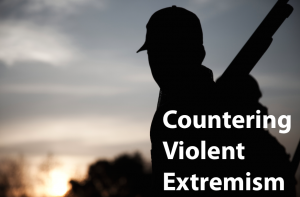Contemporary societies and states, whether in the East or the West, have been facing the dual threat of radicalism and terrorism, mainly perpetrated and justified in the name of religion. The rise and proliferation of these are largely the result of lack of economic, social and political openness at the societal and state levels, like reported by tribune.com.pk.
The problem of extremism and terrorism in Pakistan has also been due to denial to the individual its basic rights, including the freedom to associate, express and translate their skills and talents in a positive and institutionalised way. These freedoms, apart from the liberty to think and act independently, also include economic freedom, or in other words upward social, economic and political mobility.
At the state level, years of military dictatorial rules prevented individuals and communities to have economic freedom. Even most of the so-called elected governments imposed quasi-fascist and authoritarian dispensations. Due to absence of popular support from the public to the quasi-fascist elected rulers and military regimes, the state writ has merely been just a veneer while the state ability to have social control quite elusive. With regimes following anti-social policies deep inside the society, the democratic and liberal tendencies along with a democratic culture could not evolve. This created a situation conducive to thriving of extremist and militant outfits, flourishing of their narratives and proliferation of their practices.
In order to use the central principles of liberalism for countering extremism and terrorism in Pakistan, all the tools that are compatible must be used instrumentally. In this regard the creation of a knowledgeable and proactively responsive civil society, independent and vibrant media domestically, enhanced economic and cultural integration regionally and internationally could be instrumental.
As the essence of liberalism is self-restraint, moderation, compromise and peace the lack or absence of these lead to the creation of extremist and violent tendencies. Therefore, it could be argued that liberalist tenets, if used adroitly according to the prevailing local situations, could serve as an important antidote to the rising tide of extremism and terrorism. Through self-restraint the believers in and perpetrators of extremism and terrorism could be prevented from translating their attitudes into violent behaviours.
By imparting and disseminating the ideals of liberalism, through curricula in schools and media, extremism could be greatly countered. The logical corollary of self-restraint by people having extremist tendencies is moderation, which leads to pragmatism that calls for sorting out issues and conflicts through the process of dialogue, having the elements of give and take and reconciling divergent interests of disputing parties.
In fact, the ideals of liberalism could work both ways to counter extremism. If people start acting upon these central concepts of liberalism, whether having a conviction in them or not and they continue to do so, it leads to formation of more non-violent and peaceable attitudes. In this case behaviour based on liberal precepts would transform the attitude. On the other hand, attitudes formed on the foundations of liberal ideals have the potential to neutralise the extremist and violent tendencies. This could happen in the backdrop of a research finding in psychology, that at times attitude changes behaviour and at other times, it is the behaviour which transforms attitudes.
Popular wisdom stresses the impact of attitudes on action. The relation between attitude-action also works in reverse: we not only think ourselves into action but also act ourselves into a way of thinking. When we act, we amplify the idea underlying what we have done especially when we feel responsible for it. Thus, Pakistan’s state and society must do their utmost to adopt liberal policies and norms and values, respectively.



